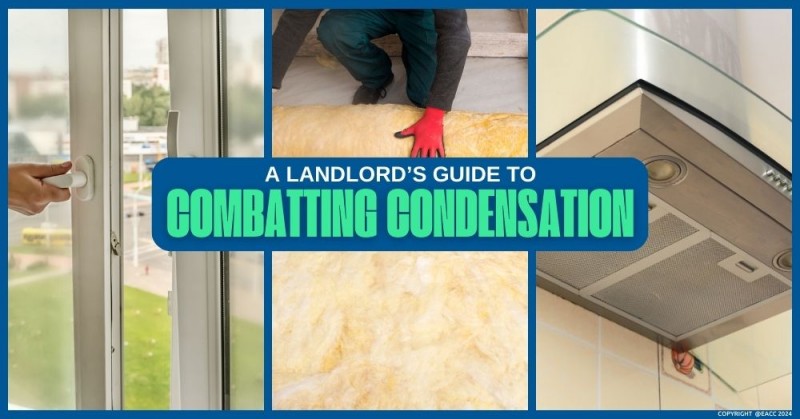
As a landlord, maintaining your property in top condition is paramount.
It’s your investment and your tenant’s home.
At this time of year, condensation can be an issue. And it can cause mould in your property if ignored.
The good news is we’re sharing six steps you can take to prevent these problems before they become an issue.
Quick fixes
1) Ensure adequate ventilation: One of the primary causes of condensation is poor ventilation. Make sure your property has sufficient airflow. Install extractor fans in high-moisture areas like kitchens and bathrooms and encourage tenants to use them. Trickle vents in windows are also an effective way to maintain a constant airflow.
2) Maintain a consistent temperature: Fluctuations in indoor temperature can lead to condensation. Encourage tenants to keep a consistent, moderate temperature, especially in colder months, to reduce the risk of dampness.
3) Inspect and repair: Regular inspections are crucial. Check for any issues that could lead to condensation. Timely repairs can prevent minor problems from escalating.
4) Educate your tenants: Sometimes, lifestyle habits contribute to condensation. To reduce moisture (which could lead to condensation), educate tenants about simple actions like avoiding drying clothes indoors, using lids on pans while cooking, and opening windows regularly (ideally for 15 minutes daily).
Longer term solutions
5) Investing long term: Consider installing positive input ventilation (PIV) systems, which can significantly reduce condensation by providing constant fresh, filtered air. These can be costly to install, though.
6) Address insulation and heating: Poor insulation and heating can lead to cold surfaces, creating ideal conditions for condensation. Investing in updated insulation and heating systems can prevent condensation from becoming a problem and make your property more energy efficient.
By taking these proactive steps, you can protect your property from the risks of condensation, ensuring a comfortable living environment for your tenants and protecting the value of your investment.
Feel free to contact us if you have any questions on this or any other rental property-related questions. We’re here to help.
